Some mornings, you can sense the strain in a busy depot. A missed entry here, a double-booked seat there, and a staff member juggling spreadsheets that were patched together over the years. Those moments reveal how manual systems quietly slow travel businesses and drain revenue in ways people stop noticing.
Bus booking software enters as a practical upgrade, yet the more you explore it, the more it feels like a partner that studies patterns, spots wasted effort, and highlights opportunities you may have overlooked. It helps teams work with clarity rather than constant catching up, especially when supported by modern bus reservation software and a streamlined online bus booking system that simplifies every stage of operations.
In this blog, we take a close look at how the right platform improves revenue, lowers operational costs, strengthens customer experience, and supports smarter decisions across the board. The goal is to give you a grounded view of how modern bus ticket booking software and a unified bus booking system for travel companies support long-term, predictable growth.
Explore our Bus Booking Software to modernize your travel operations.
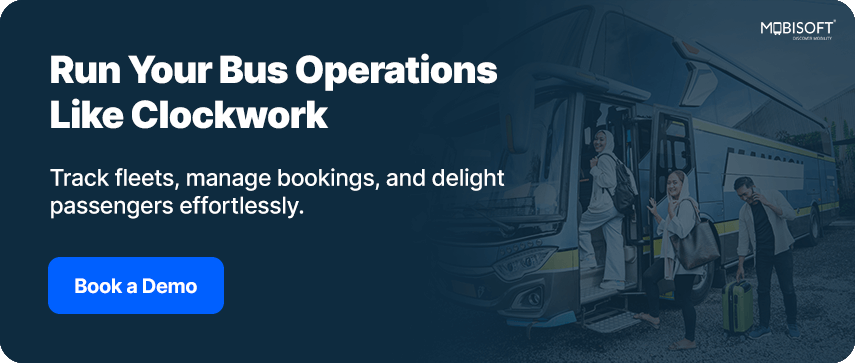
How to Increase Revenue with Bus Booking Software
Dynamic Pricing That Reflects Real Demand
Revenue improvement rarely comes from one bold move. It comes from steady adjustments that compound over time. Dynamic pricing is one of those powerful adjustments. The software studies demand patterns, seasonal behavior, competitor fares, and remaining inventory, then responds with timely price changes. Quiet routes become more appealing due to well-timed fare drops, and busy trips earn more because the system recognizes their value. Over time, the difference in yield becomes noticeable in a way that manual spreadsheets could never match, especially when powered by bus operator software for travel agencies designed to increase revenue growth with bus booking software.
Ancillary Revenue That Builds Naturally
Extra luggage, travel insurance, partner add-ons, premium seating, etc, show up during checkout in a smooth, unobtrusive way. This ancillary revenue has a surprising impact on overall profits. Each of these services doesn’t cost a lot individually but amounts to significant profits when scaled, making it an important bus ticketing solution for travel companies working to improve margins.
Subscriptions and Loyalty Programs
Subscriptions provide a sense of stability. Commuters appreciate predictable monthly passes or credit-based bundles, and loyalty points encourage repeat bookings. When customers know they gain value over time, they browse alternatives less often. Over several cycles, this behavior strengthens retention and increases lifetime value.
Route Profitability Insights
The software uncovers which routes quietly lose money and which deserve more investment. It reviews load factors, revenue per kilometer, and seasonal changes, then presents insights that guide more sensible scheduling. Some services once believed to be reliable turn out to be underperformers, while others prove to be stronger than expected.
Expanded Distribution Reach
Integrated distribution puts your services in more places without creating inventory chaos. Online marketplaces, reseller networks, and agent portals connect to a centralized bus booking system, eliminating overselling and giving your brand a wider presence. More visibility leads to more bookings, all without scaling marketing budgets at the same rate.
Learn how a Smart Bus Booking System supports revenue-focused growth.

How to Reduce Operational Costs with Automation
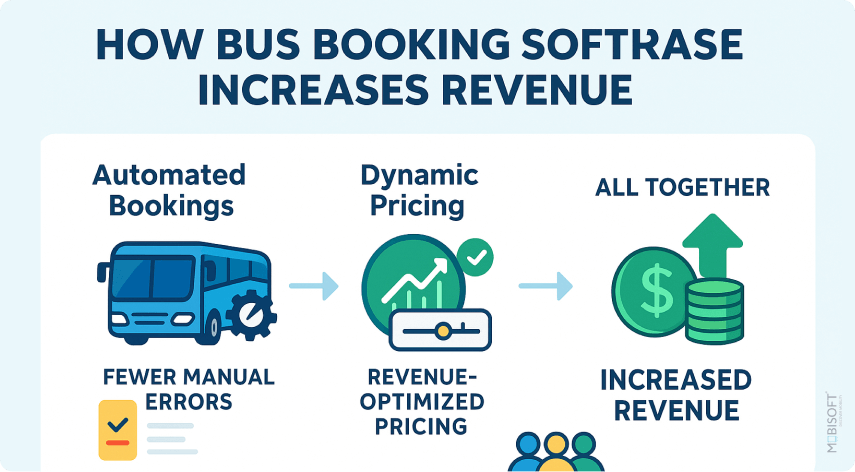
Automation of Core Tasks
Sometimes the most expensive problems are the quiet ones. Manual scheduling, dispatch coordination, and routine reporting eat up time in small chunks that stack up into real costs. When a travel booking software system takes over these frequent tasks, the whole operation feels more streamlined, almost like someone cleaned up a messy desk that everyone had gotten used to.
Reducing Human Error
During busy hours, mistakes creep in faster than anyone expects. A fare typed incorrectly or a booking confirmed twice may look tiny at first, yet the fallout can be surprisingly expensive. Refunds, reconciliation delays, and irritated customers tend to arrive together.
With automated checks running quietly in the background, the system catches mismatched prices, unavailable seats, or incomplete entries before they cause trouble. It feels almost like having a careful colleague who never gets tired, and that steadiness helps reduce rework and the unnecessary noise that wears down staff morale.
Smarter Fleet Utilization
Fleet utilization is usually where real operational efficiency reveals itself. Instead of guessing which buses should run and when, intelligent scheduling tools study occupancy patterns, route profitability, and timing gaps across the network through integrated bus reservation software.
Fuel and Maintenance Savings
Transportation doesn’t work without fueling or regular maintenance. Having a routine helps, or else the costs can quickly add up if not paid attention to. Automated reminders greatly help a team to set up recurring maintenance checks and maintain stability within a central bus ticketing system.
Automated Workflows
Back-office work often grows heavier than expected. Payroll corrections, reconciliations, permit documents, and compliance reports demand careful attention, and one missing figure can delay an entire week of operations. Automated workflows give these tasks a cleaner path. Reports show up right away, records stay consistent, and auditors quit sending those long, worried email chains.
Discover how Bus Transportation Software improves operational efficiency.
Enhancing Customer Experience to Drive Growth
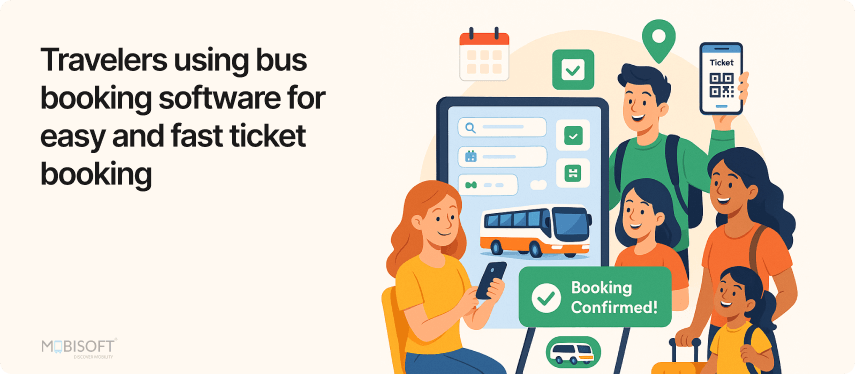
Omnichannel Consistency
- In travel, customer experience is often what decides loyalty.
- When booking is available across web, app, and agent portals with consistent pricing and seat maps, customers feel reassured.
- They can book where they are most comfortable without running into mismatched information.
Proactive Communication
- Auto-messages about holdups, boarding times, flight cancellations, and bad weather help calm passengers down.
- These updates also cut down on support calls because travelers get info before they feel they need to ask for it.
Review and Rating Integration
- Reviews matter. Seeing good reviews about being on time or giving great service pushes new customers to book.
- Even harsh feedback is useful because it points out things to fix that you might miss inside the company.
Personalized Journey Experience
- Personalization creates tiny moments of delight. Small improvements in convenience often lead to stronger loyalty.
- Remembered preferences, faster checkouts, saved traveler details, and relevant add-ons make the booking process feel tailored with modern bus ticket booking software.
See how the Bus Ticket Booking App enhances customer journeys.
Leveraging Data for Strategic Decision Making
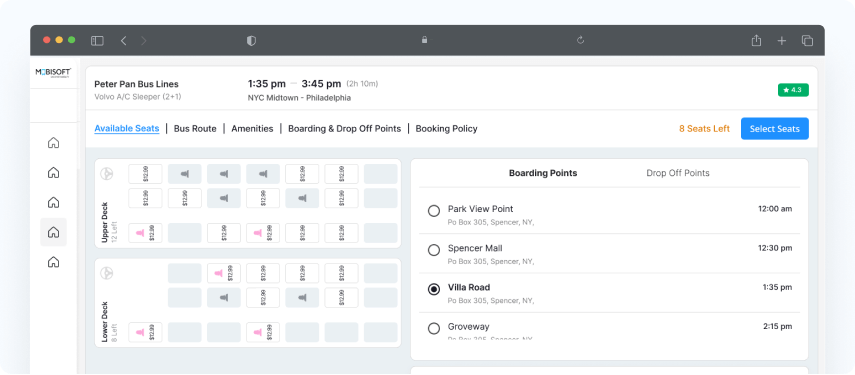
Real-time Dashboards
- Data becomes genuinely useful when it is easy to read.
- Leaders can catch early signs of underperformance and adjustments become timely rather than reactive.
- Real-time dashboards visualize occupancy, revenue, cost per kilometer, and performance by route inside a unified bus operator software dashboard.
Customer Segmentation
- Understanding groups within your customer base unlocks smarter marketing.
- Early planners, corporate travelers, family groups, and weekend riders all behave differently.
- Keeping an eye on regular spikes, price changes, and what other competitors in the market are doing helps you stay ahead while connected to your bus ticketing system.
Competitive and Market Insights
- Your company's internal data can tell you more about the market than outside reports in some cases.
- Keeping an eye on regular spikes, price changes, and what other competitors in the market are doing.
Forecasting and Planning
- When you feed past trends and current numbers into the system, you can make better predictions.
- This helps you plan your resource set prices and get ready for busy seasons. Instead of taking wild guesses, you can prepare with a clear goal in mind.
Explore deeper insights for the Transportation and Logistics Industry.
Mitigating Business Risk and Ensuring Compliance
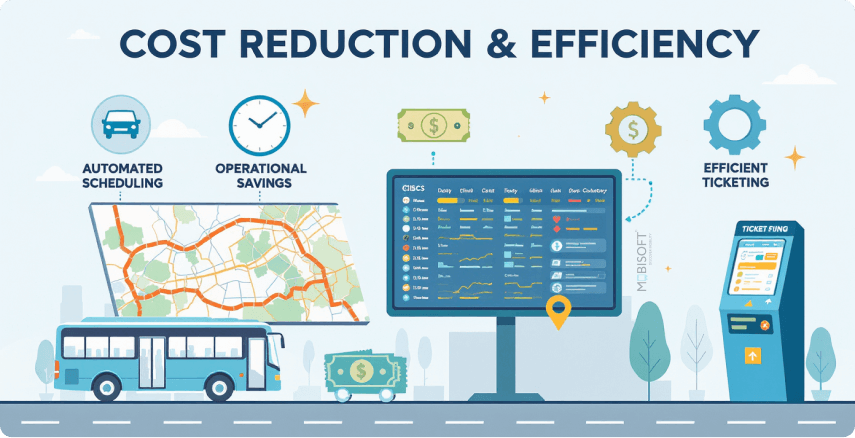
Secure Revenue Handling
- Secure gateways and complete audit trails reduce revenue leakage.
- Every change, cancellation, and payment has a documented path, which makes reconciliation far simpler and minimizes disputes.
Compliance Automation
- Regulations often change, whether related to tax, regional travel norms, or passenger safety guidelines.
- Automated compliance features keep you aligned with requirements and prevent penalties.
- Structured reporting reduces the chance of errors during inspections or audits.
Enterprise-grade Data Protection
- Encryption, controlled access, backups, and activity logs together create a strong security posture.
- Protecting customer information is not only a responsible practice, but it is also essential for maintaining trust in a competitive travel market.
Understand how an Automated Ticketing System supports compliance and safety.
Conclusion: Your Strategic Investment for Sustainable Growth
Pause for a moment and consider how travel operations unfold each day. It helps you easily understand and appreciate the role of a well-built travel booking software platform. It raises revenue through thoughtful pricing decisions and sharper route analysis, while also trimming the unnecessary expenses caused by manual routines that never quite stay consistent. Over time, the system creates a calmer pace for customer interactions and internal decision making, giving teams a steadier footing as they plan what comes next.
What stands out most is the reliability it brings. Predictable systems give companies room to grow without constantly fighting small fires. With clearer workflows and data you can trust, attention finally moves back to expansion rather than patching problems. If you are weighing a move toward a cleaner and more efficient operational model, this is a good moment to look into it. Ready to increase your business profitability? Schedule a personalized demo today.
Compare options to choose the Best Bus Booking Software for your business.
Key Takeaways
- Using bus booking software, firms open multiple ways of revenue generation.
- A unified online bus booking system strengthens customer trust and boosts repeat bookings.
- Real-time data inside bus reservation software gives a transparent picture of routes and congestion.
- Integrated maintenance tracking inside bus ticketing solutions prevents costly last-minute repairs.
Automated compliance and secure payments reduce risk exposure inside a modern bus booking system.

FAQs
What operational problems do travel companies usually solve first after adopting such a system?
Most teams notice immediate relief in scheduling, dispatch coordination, and manual reporting because these areas tend to collect small but frequent errors. Once automation handles these tasks, staff regain time for decisions that require experience rather than repeated data entry. The overall pace of operations feels calmer and more coordinated, almost as if the team finally has room to breathe.
How does automation help reduce financial loss caused by human error?
Manual entries often carry small inaccuracies that quietly grow into refunds, complaints, or compliance delays. The system checks seat availability, fare consistency, and booking records before issues snowball into costly outcomes. This dependable layer of verification gives operators a steadier rhythm in everyday work and noticeably fewer correction loops.
Can bus booking software genuinely improve fleet utilization?
Yes, because the platform studies occupancy trends, route costs, and timing gaps that are usually difficult to track manually. With these insights, operators can assign vehicles more wisely, avoid half-empty trips, and manage high-demand routes without scrambling. The result is a more balanced fleet that stays engaged without unnecessary fuel burn or idle hours.
What customer experience improvements have the strongest business impact?
Travelers appreciate a booking journey that works smoothly on web, mobile, or agent platforms without feeling disjointed. Automated notifications reduce uncertainty, while transparent reviews give new customers a sense of trust before they purchase. When these elements work together, repeat bookings rise steadily because customers prefer an experience that feels simple and dependable.
Can this software integrate with our existing accounting or CRM tools?
Most modern bus booking platforms are built with connectivity in mind. They typically offer integration capabilities with common business tools through APIs. It is a crucial question to ask any vendor during a demo to ensure a smooth fit with your tech stack.
Why is compliance automation becoming increasingly important for bus operators?
Regulations around safety, data protection, and digital transactions change at a pace that can overwhelm manual teams. Automated compliance tools keep documentation updated, store audit trails, and protect payment flows from unnecessary risk. This reduces anxiety for operators who already balance tight schedules and rising customer expectations.
How does software strengthen long-term operational sustainability?
Maintenance reminders, fuel tracking, and unified reporting create a more stable operating rhythm that grows stronger over months, not weeks. This steadiness is what eventually supports expansion because the business is no longer pulled into constant recovery mode.

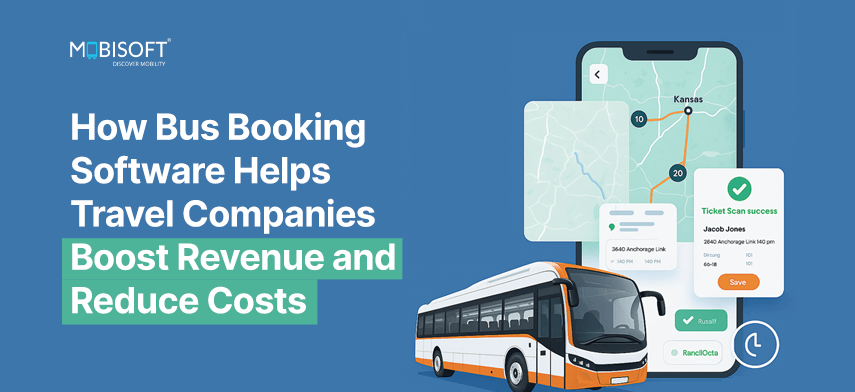


 October 15, 2025
October 15, 2025


